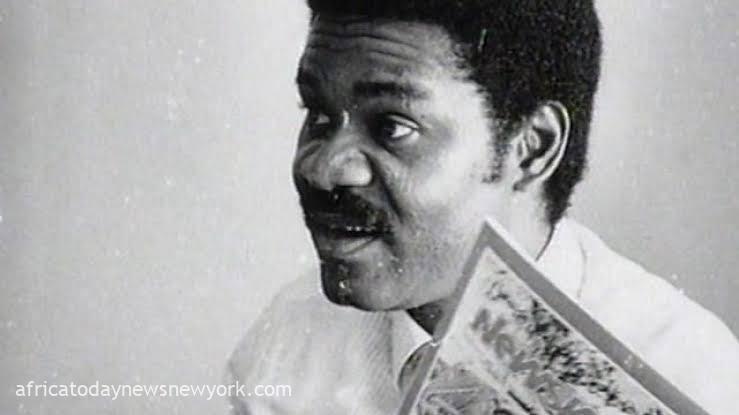In a landmark ruling, a Federal High Court in Abuja directed the Federal Government to launch a thorough investigation and prosecute those responsible for the murders of journalists in Nigeria from 1986 to 2023.
Notable figures among the victims during this timeframe include Dele Giwa, the visionary behind Newswatch Magazine, along with Bagauda Kaltho, Alex Ogbu, Ikechukwu Onubogu, Maxwell Nashan, Onifade Pelumi, and Precious Owolabi.
Through legal channels, the Incorporated Trustees of Media Rights Agenda brought a case against the Attorney-General of the Federation, requesting various forms of relief, including an official acknowledgment that the deliberate killings of Nigerian journalists transgress their fundamental entitlement to life.
Furthermore, the organization pressed for the protection of media practitioners’ basic right to safety, as outlined in both the 1999 Constitution and the African Charter on Human and Peoples’ Rights.
MRA also contended that some journalists are persistently subjected to harassment by security agencies as they discharge their duties, while the Attorney-General of the Federation is allegedly inactive in addressing these concerns.
Justice Inyang Ekwo’s judgment underscored that any extrajudicial act cannot go unaddressed without the Federal Government carrying out a thorough investigation and subsequent prosecution.
Justice Inyang Ekwo emphasized that as the chief law officer of the federation, the Attorney-General of the Federation was duty-bound to prosecute and punish those responsible for the killings of media practitioners in the country.
Ekwo said, ‘An order is hereby made directing the Federal Government of Nigeria to investigate, prosecute, and punish perpetrators of all attacks against journalists and other media practitioners, and ensure that all victims of attacks against journalists have access to effective remedies.’
Furthermore, he ordered the Federal Government to take measures to ensure the effective protection and safety of journalists, consistent with the directives articulated in sections 33 and 39 of the Constitution, and Articles 4 and 9 of the African Charter on Human and Peoples’ Rights.
‘An order is hereby made directing the Federal Government of Nigeria to take measures to raise awareness and build the capacities of various stakeholders, particularly journalists and other media practitioners, policymakers, law enforcement, security, intelligence, military as well as other officials and relevant stakeholders on the laws and standards for ensuring the safety of journalists and media practitioners,’ Ekwo added.
He, however, ordered the FG to put in place measures that would prevent journalists from attacks.
Reacting to the development, a Senior Advocate of Nigeria, Norrison Quakers, commended the judgment of the Federal High Court.
Read also: How 189 Journalists Were Arrested Under Buhari Govt – Report
Quackers said although the judgment was a welcome development to the justice system of the country, there was a need to show concerns about how the investigation would be carried out, urging the Federal Government to obey the order by enforcing the probe into the deaths of the late Giwa.
He said, ‘It is a good one as the court is ordering the government, and in law, there is no time-bound to criminal prosecution and even investigation unlike a civil case because this has to do with deaths and the lives of some journalists who have been cut short.’
‘Recall that even the Attorney-General of the federation under former President Olusegun Obasanjo, Chief Bola Ige, was also murdered while he was still serving and from that time till now arrests have not really been made and investigations have not been carried out to the point where people are arrested or prosecuted. Funsho Williams was also murdered in Lagos State among others. There are many such crimes.’
‘It is a welcome development. The question is how far can the Federal Government go to carry out the investigation? Are the people involved at that time still around to be asked questions? Can the military men who were also accused of being complicit in that be arrested? Is the will actually there to enforce this judgment, the directive of the court against the government to carry out investigations?’
In his remarks, Lanre Arogundade, the Executive Director of the International Press Centre, voiced his support for the ruling and credited Justice Inyang Ekwo for his steadfastness in ensuring that this matter remains prominent and unresolved.
He added that it was important and good that the order extended to other journalists, who lost their lives ‘mostly in very controversial circumstances’.
He stressed that the Federal Government’s compliance with the court order and swift response would signify its belief in the principles of the rule of law, press freedom, and freedom of expression. Such actions could serve as a deterrent to individuals contemplating involvement in similar criminal acts in the future.
Arogundade said, ‘It has always been a worrisome development for us that journalists could just be killed or disappear particularly even after we have left the military era, and the trend has been persistent. In terms of what it means, I suppose that this order can send a signal to whoever is planning to attack journalists that they may not go scot-free which means that it is good and hopefully serve as a kind of warning or disincentive for anyone for whatever reason to assault or attack journalists.’
‘For me, it is a very welcoming development. If the Federal Government takes immediate steps to abide by the court order, it will send the signal that they believe in the rule of law and Press Freedom, Freedom of Expression. I will not want to speculate but to assume that the government through its appropriate agencies will have no reason not to obey and carry out the instructions of the court.’
